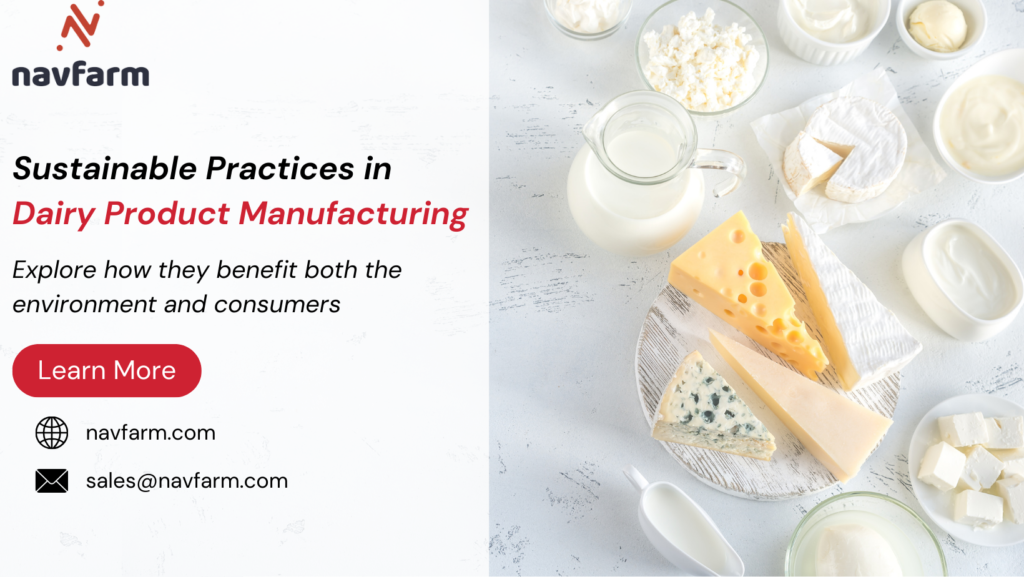
Dairy product manufacturing plays a crucial role in providing people with a range of delicious and nutritious items like milk, cheese, yogurt, and butter. However, the production process can have significant environmental impacts. In recent years, the dairy industry has been making strides in adopting sustainable practices to reduce its ecological footprint.
Key sustainable practices in dairy product manufacturing
In this blog, we’ll explore some of the key sustainable practices in dairy product manufacturing and how they benefit both the environment and consumers.
- Responsible Sourcing of Ingredients: One of the first steps towards sustainability in dairy product manufacturing is sourcing milk and other ingredients responsibly. Many dairy companies are now working with local farmers who prioritize eco-friendly farming practices. These practices include reduced water usage, less use of synthetic pesticides, and reduced greenhouse gas emissions.
- Packaging Innovations: Eco-friendly packaging is a growing trend in dairy product manufacturing. Companies are transitioning to sustainable packaging materials like biodegradable or recyclable options, reducing plastic use, and minimizing packaging waste.
- Local Distribution: Reducing the carbon footprint associated with transportation is a significant sustainability practice. Many dairy companies are now focusing on local distribution to reduce greenhouse gas emissions and support the communities they operate in.
- Sustainable Farming Practices: Supporting farmers who follow sustainable farming practices is a crucial aspect of dairy sustainability. This includes encouraging pasture-based farming and promoting animal welfare.
- Traceability and Transparency: Providing consumers with information about where their dairy products come from and how they are produced fosters trust and encourages more sustainable choices.
- Also Read : Microsoft Dynamics 365 for Aquaculture
Conclusion
In conclusion, the dairy industry is increasingly adopting sustainable practices to minimize its environmental impact. These practices encompass responsible ingredient sourcing, energy efficiency, water conservation, waste reduction, and eco-friendly packaging. By prioritizing sustainability, dairy product manufacturing not only reduces its carbon footprint but also ensures a healthier planet for future generations while delivering high-quality products to consumers. As consumers, we can further support these efforts by choosing dairy products from manufacturers committed to sustainability.
